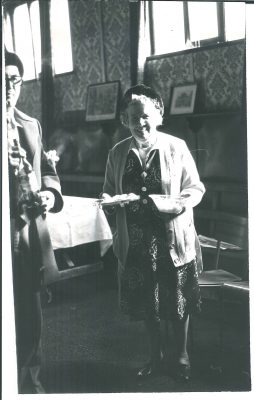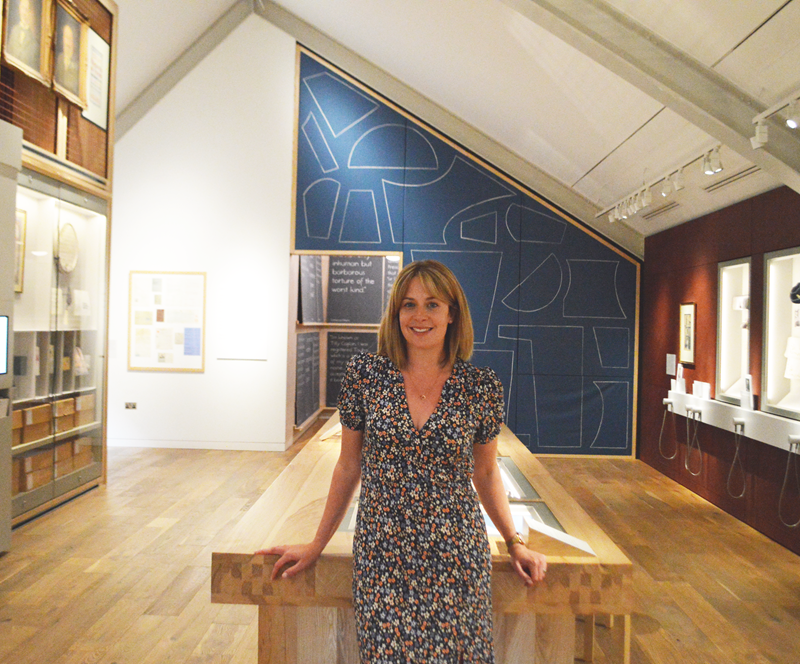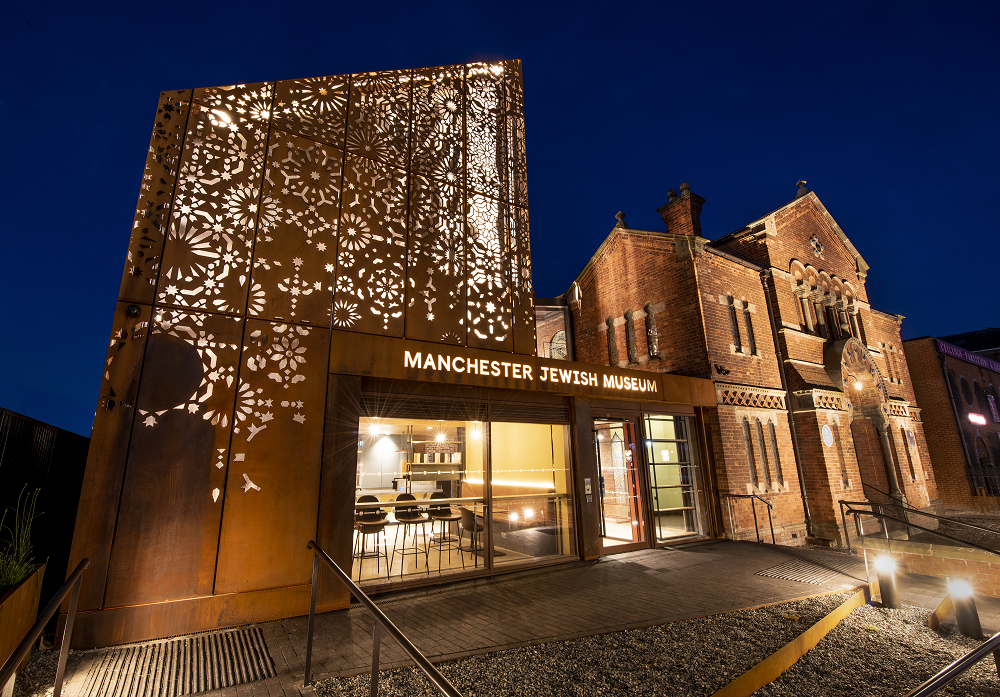The Great Jewish Museum Bake Off – Annie Conway’s Borekas
To keep us entertained in Lockdown and inspired by Leo’s Eat The Archives event we have teamed up with Jewish Museum London to compete in the #GreatJewishMuseumBakeOff
Each week throughout March the two museums will respond to a baking challenge from our archives and the results will go up on Twitter for the public to vote their winner.
The first week’s challenge was set by Jewish Museum London – traditional Honey Cakes from a 1930 recipe book by Fannie Prang. You can read more about the recipe and Fannie Prang’s cookbook on Jewish Museum London’s blog here.
Follow us on Twitter (@mcrjewishmuseum) to take part in the weekly competition and be sure to vote your winner every Wednesday.
Week Two: Annie Conway’s Borekas
We chose borekas for the second week’s challenge – petite pastry parcels filled with a filling of your choice (we had spinach and feta, aubergine and tomato, lentil and sweet potato!).
Find the recipe below (complete with instructional images from Jewish Museum London’s Frances Jeens) and read on to hear the story that inspired our choice!
The Ingredients
FOR THE DOUGH:
- 2 ½ cups all-purpose flour (320 g), plus more for rolling the dough
- 1 teaspoon kosher salt
- ¼ pound/115 g cold unsalted butter, cut into 1/2-inch cubes
- ½ cup/120ml ice water, plus more as needed
- Egg wash (1 large egg mixed with 1 tbsp. water)
FOR A SPINACH-FETA FILLING:
- 1 package frozen chopped spinach (16 oz/455 g), defrosted and drained (or
- ¾ cup/115 g crumbled feta cheese
- ½ cup/50 g grated Parmesan, plus more for topping
- Kosher salt and ground black pepper
- 1 large egg, beaten
- 1 tbsp all-purpose flour
The Method
- Make the dough: Mix and combine the flour and salt. Add the butter mix just until the butter pieces are the size of peas. Slowly add the ice water and process just until combined. Form the dough into 2 disks about 1 inch thick, wrap in plastic and refrigerate for at least 30 minutes.
- Meanwhile, heat the oven to 180°C and line a baking tray with baking paper.
- In a medium bowl, combine the spinach, feta and Parmesan. Season to taste with salt and pepper, then add egg and flour.
- Working with one disk of dough at a time, on a lightly floured surface and using a lightly floured rolling pin, roll out the dough into a circle about 1/8-inch thick or slightly thinner. Using a 3 1/2-inch/9-centimeter circle cutter, cut as many circles as you can from the dough.
- Hold a circle in your hand and fill with 1 tablespoon of filling. Fold up the sides into a half-moon shape and pinch the edges closed to seal, crimping them if you like. Place the sealed boreka on the prepared baking tray and repeat with the remaining dough.
- Brush the tops lightly with the egg wash and sprinkle with a large pinch of grated Parmesan. Bake for 30 to 35 minutes or until the crusts are golden brown.
This recipe is by Joan Nathan, published on NY Times Cooking, with some of our own twists. Click here for recipe.
Annie Conway

Annie Conway (c) Manchester Jewish Museum
Our borekas are inspired by the story of Annie Conway – a story of finding out how to belong in a changing community.
Born Mary Ann Moore, Annie converted to Judaism when she married Harry Cohen in 1936. The Cohens later changed name to anglicised ‘Conway’ and Annie soon became a prominent member of the Portuguese and Spanish Sephardi synagogue in Cheetham Hill – now the Manchester Jewish Museum.
She dedicated herself to the synagogue and the community, embroidering cushions and upholstering furniture as well as cooking traditional Jewish dishes including the traditional Sephardi borekas you see her holding in this photo.
For us, borekas are a symbol of Annie’s dedication to a community she did not originally belong to, being an Irish woman, but also a reminder of Cheetham Hill’s rich Jewish community history.
















